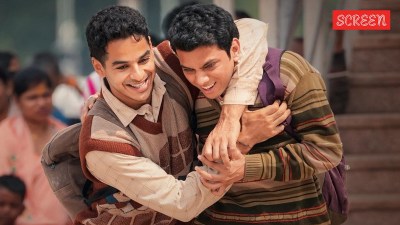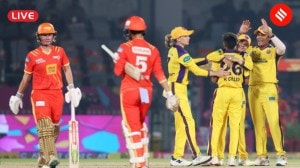Punjab146;s Village.Com
THE prosperous Punjab village may be a cliche. But try a Punjab village with a 1500-capacity auditorium, a string of schools, a swimming poo...

THE prosperous Punjab village may be a cliche. But try a Punjab village with a 1500-capacity auditorium, a string of schools, a swimming pool, as many e-mail IDs as there are residents and possibly the first rural sewage system. And then put a name to it: Palahi.
Located in the heart of the cash-rich Doaba heartland, three km from Phagwara, Palahi is something of a tourist attraction, luring travellers off NH1 for a dekko. They don8217;t go back disappointed, what with the Rs 20-lakh school building, Rs 30-lakh community hall, Rs 5-lakh mosque for the sole Muslim family, free Internet and e-mail access et al.
8216;8216;But what makes me really proud is the fact that ours will be the first village in India to have an underground sewerage system,8217;8217; says a beaming Gurmit Palahi, principal of the Community Polytechnic Institute in the village.
It is the stuff dreams are made of, and most of it is funded by private money, sourced from Palahi8217;s migrant sons in the Western world. Much of the Doaba region can lay claim to such generosity, not many, however, can compete with the thrifty management of the funds. The dictum is 8216;do-it-yourself DIY, but keep an eye out for government doles8217;.
The synergy now among the Polytech, the panchayat, the NRDS and the individual villager is like an organic live wire connection. Consider the way it worked on the village pond, a fast-disappearing component of rural Punjab. The panchayat decided that the pond must be kept alive and be used for water-harvesting. During summers, drained-out water from the nearby gurdwara pool is diverted to the pond, fish seed is introduced and a private party contracted for maintenance for a few thousand rupees. And so the villagers have a regular income, a preserved pond, excellent use of recycled water and environment conservation.
|
WHAT MAKES PALAHI TICK? IT is a question that many sarpanches and Rural Development students in Punjab ask. 8216;8216;A skilled manager8217;8217;, is Gurmit Palahi8217;s stock answer, and oodles of diligence. So that if a proposal has to be sent to CAPART, someone will take the pains to draft and key in 100-odd pages and follow up weeks of correspondence with a spiral-bound proposal. Only then do grants like the Rs 13 lakh Palahi received recently flow in. Good management shows. And villagers often finish arguments with mention of a bio-gas plant. Of the 300-plus community biogas plants in Punjab, Palahi8217;s is the only one functioning. But then there are scores of such examples, and scholars from abroad have expressed a wish to take up case studies of Palahi for doctoral thesis. Wait till Palahi is a subject. Story continues below this ad |
Then there8217;s the underground sewage system. Villagers say that when they first broached the subject with the administrative authorities, they were told there simply wasn8217;t any government money available for the purpose. 8216;8216;No village in India has underground sewerage,8217;8217; they were told. Perturbed by the consequences of untreated sewage on human health, Jagat Singh Palahi, a well-known philanthropist-industrialist with connections abroad, went ahead and collected Rs 36 lakhs; the pipes are currently being laid. 8216;8216;We need Rs 50 lakhs for the whole job, but we8217;re certain the project will be completed,8217;8217; says Gurmit Palahi.
And to keep its NRI benefactors posted on developments in the village, the polytechnic sends out regular newsletters; a Palahi website is also being set up. To further computer literacy, the British Council Division conducts exams and gives out diplomas recognised by Cambridge University.
For all that, Palahi has its problems. For one, says Gurmit Palahi, 8216;8216;Around 50-60 girls from the village either haven8217;t gone to college or have dropped out in the last few years. We have also identified 10-12 youths who8217;re addicted to drugs. Obviously, they are rebelling against the healthy option. We have to think in terms for the youth8217;8217;.
Palahi is also tackling another problem of plenty: Scores of villages have lined up for adoption, and village elders simply can8217;t make up their minds from a shortlist of 20. Problems, undoubtedly, that other villages would give their arm-leg for.
- 01
- 02
- 03
- 04
- 05































